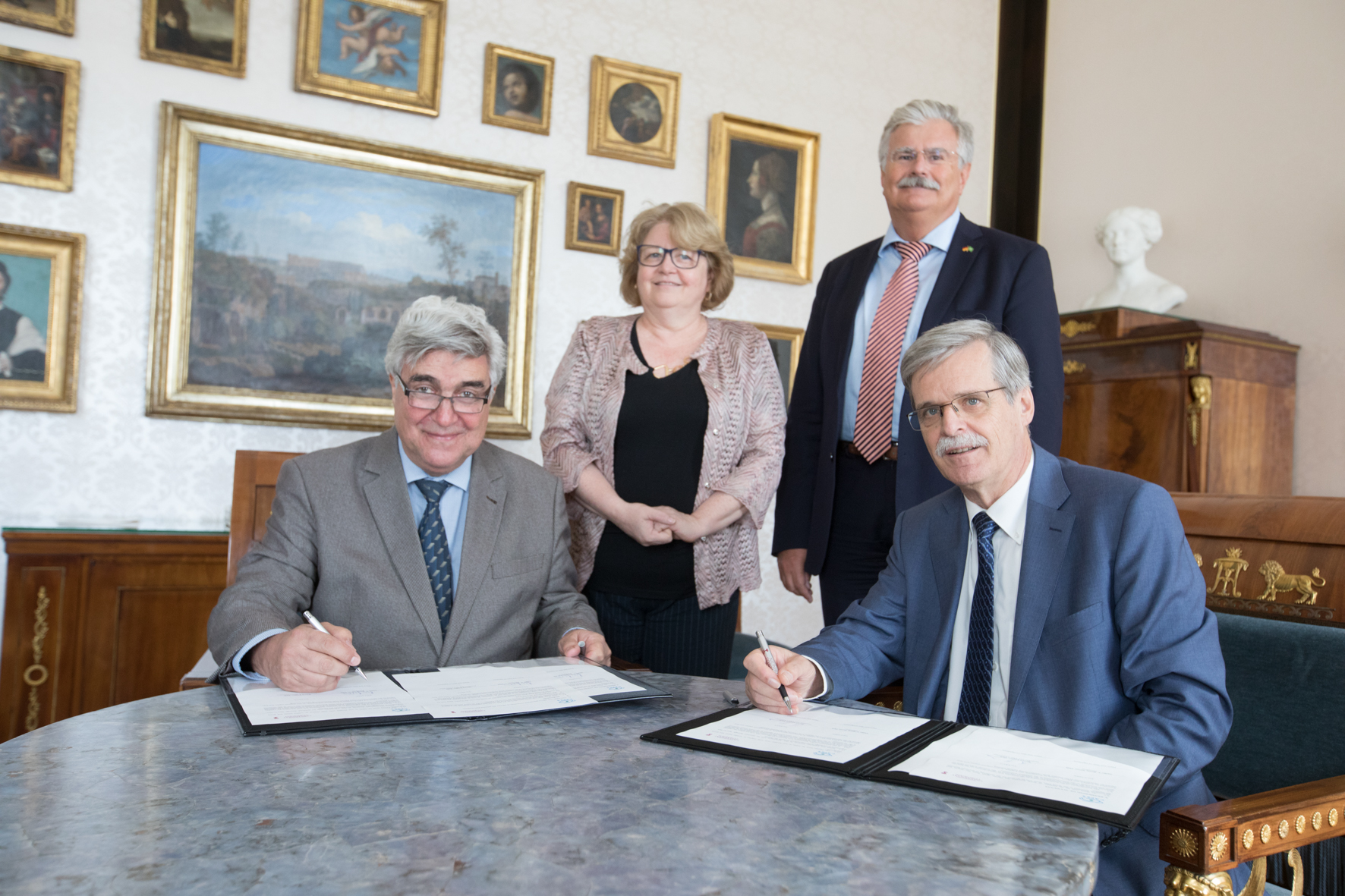attempto online
15.10.2018
University of Tübingen and CAPES sign cooperation agreement
The University of Tübingen and the Brazilian Agency CAPES (Coordenação de Aperfeiçoamento de Pessoal de Nível Superior) are embarking onto a new era of intensified transnational cooperation between the universities and research institutions in Brazil and in Tübingen.
The President of CAPES, Professor Abilio A. Baeta Neves, and University President Professor Bernd Engler have signed a broad scale cooperation agreement with two individual Work Plans on October 15, 2018 in Tübingen. The agreement’s lifespan of ten years allows the partners to establish lasting ties and devise international research projects that both doctoral candidates and post-doctoral researchers can engage in.
The cooperation agreement entails the establishment of a “Distinguished Guest Professorship” for Brazilian researchers at the University of Tübingen. These prestigious so-called Brazil Chairs have already been established at other universities around the globe such as Harvard, Oxford and the Sorbonne. The University of Tübingen is among a handful of German universities to have been given this opportunity for international collaboration in teaching and research. Indeed, Tübingen is already looking forward to welcoming the first international scholars within this esteemed program.
Furthermore, the Tübingen Center for Academic Drug Discovery (TüCADD) will closely cooperate with Brazilian institutions by engaging in joint education of doctoral candidates. Within a so-called sandwich model, Brazilian doctoral candidates can spend up to two years at the University of Tübingen. CAPES and the University of Tübingen will jointly devise the corresponding calls for proposals for these research projects. German researchers will also have the reciprocal chance to travel to Brazil.
The University of Tübingen has a long history of cooperating with Brazil and its higher education institutions. The Brazil Center (Brasilienzentrum) of the Federal State of Baden Württemberg was established in 2000. The Center is responsible for the cooperation with the Brazilian state of Rio Grande do Sul and enables international mobility of students and researchers.
In 1951, CAPES was founded as a national agency of the Brazilian Ministry of Education to promote education and training of doctoral candidates and post-doctoral scholars to improve the quality of Brazilian faculty and staff in higher education. The agency is particular active in the field of the internationalization.
Katharina Sommer

